The year 1985 began with US president Ronald Reagan being sworn in for a second term. It was also the year when British prime minister Margaret Thatcher and Taoiseach Garret FitzGerald signed the Anglo-Irish Agreement. Underlying problems in the Irish economy became more pronounced. Unemployment rates touched off 20%, the public sector accounted for a third of the total workforce, budget deficits and public debt increased. Middle-income workers were taxed at 60% of their marginal income. And as the effect of emigration took hold, the population of Ireland was actually falling.
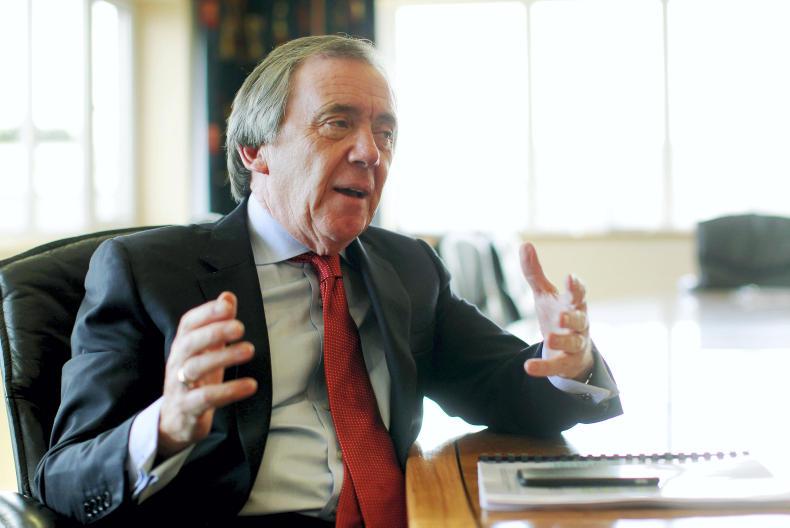 It was also the year that Larry Murrin, who had been running a small cooked meats company, met three businessmen – Peter and John Queally and Dan Browne of Dawn Meats – who backed Murrin’s business idea, setting up Dawn Farm Foods in 1985.
It was also the year that Larry Murrin, who had been running a small cooked meats company, met three businessmen – Peter and John Queally and Dan Browne of Dawn Meats – who backed Murrin’s business idea, setting up Dawn Farm Foods in 1985.
“We were a 12-person startup with a 4,000ft2 warehouse and a small cooked meat plant from which we intended to sell deli cooked meats to Irish supermarkets,” explains Murrin.
He says “it was a very crowded space, but because we offered a higher level of customer service, we were successful”. Within five years, the business was turning over €5m, and even though it had garnered a fair share of the Irish market, Murrin and his team wanted more.
Irish market
He explains: “The Irish market wasn’t really that big and rather quickly we realised if we wanted to grow we needed to export.” Thirty years ago, Ireland didn’t have a reputation for exporting food. It was mainly an exporter of primary produce such as meat, dairy and live cattle.
“A cursory look at the UK at the time told me that there were hundreds of companies just like us in the UK, so it was going to be a tough hard road selling deli meats to the British retail trade,” he says.
Brands were going to need companies to deal with the challenge of customising ingredients that made manufacturing of their products easier
But consumer trends were beginning to change and a variety of foods started appearing on supermarket shelves.
“We could see an opportunity if that trend was to continue. Brands were going to need companies to deal with the challenge of customising ingredients that made manufacturing of their products easier,” explains Murrin.
This allowed Nestlé and the then Northern Foods to outsource aspects of their manufacturing process, leaving them to focus their efforts on assembly, innovation and marketing.
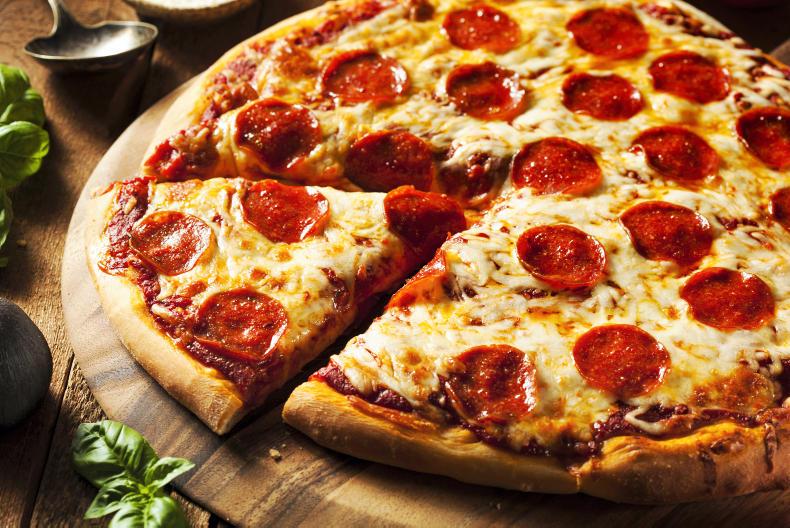
He says they used their capabilities in meat to craft customised solutions for brand-holders that they could incorporate into ready meals, recipe dishes, sandwiches, pizza and snacks. Perhaps surprising today, but pre-sliced cooked meats hadn’t really been born in 1985. One of the big breakthroughs came in 1988 when Pizza Hut UK chose Dawn Farm Foods as one of its suppliers of pizza toppings. Within two years, it was the chain’s sole supplier of pizza toppings in the UK and, two years later, it was Pizza Hut’s sole supplier of pizza toppings in Europe.
Murrin says: “This was a catalytic moment for the business. Having one of the big branded players endorse a small company from Ireland had a ripple effect for others in the market.”
Largest cooked meat ingredients company in the world
Employing 700 people in Naas and a further 400 on its Northampton site in the UK, today Dawn Farm Foods is the largest cooked meat ingredients company in the world outside of North America. It does not do any slaughtering and its cooked beef, pork, bacon, chicken and turkey form part of someone else’s finished products that end up in more than 40 countries around the world.
Food service is becoming a larger part of the business
It is estimated that up to 50m people per week eat a product that has an ingredient from Dawn Farm Foods. It produces 500 different stock-keeping units (SKUs) every week and more than 90% of everything is exported with just under a third going to the UK.
The majority of meat is sourced locally, but there are not enough specific cuts in Ireland, so the balance comes from Europe. Food service is becoming a larger part of the business, growing from 20% of sales 20 years ago to accounting for more than half of the business today. Murrin believes this is a trend that will continue.
Innovation
Dawn Farm Foods does not make a single product the same way today as it was making 10 years ago, such is the scale of product churn. He says: “Research and innovation have always been at the heart of our approach and we are committed to maintaining this winning formula.”
Our customers want ... certainty about safety, traceability and animal health and welfare practices
It employs 30 people in research and development and is investing a further €25m in research over a five-year period, which will see the creation of 150 jobs. Dawn Farm Foods recently joined with Enterprise Ireland and University College Dublin to launch a new innovation partnership to enhance food quality and safety. Murrin says: “Our customers want reassurance that the food being served to them is produced in a sustainable way with absolute certainty about safety, traceability and animal health and welfare practices. They want clear evidence of high-quality, lightly processed nutritious ingredients.”
Building relationships
He believes an emphasis on developing long-term relationships with customers has been key to the company’s continued success. “We are a business-to-business operation. Our success has been based on having long-term relationships with our customers and working together to anticipate and meet the key trends in the competitive markets they serve,” he says.
For example, earlier this year, Dawn Farm Foods signed an €850m contract with Subway, which will see it supply over 4,000 Subway restaurants in over 30 countries across Europe over the next seven years. This continues a long relationship between Subway and Dawn Farms, which started in 1993. He says that partnering with companies like Subway or Pizza Hut translates into significant additional export opportunities for Dawn Farms. “If a Pizza Hut or Subway wants to enter a new market, they have to bring a qualified supply chain with them,” according to Murrin, adding “we can create that safe and secure food chain for them that protects their brand integrity”.
Local solutions
But he also says there comes a time where they will need local solutions. He says: “Food service brands that have gone into foreign markets with local supply chain solutions don’t usually work.” He believes brands that have been successful in new markets are the ones that have opened up with trusted, reliable supply chain partnerships that they already work with.
We are absolutely in growth mode
“We don’t go out and buy growth through acquisition, it’s more to add capability to support continuing relationships with major customers. The further out from Ireland and the deeper into central European markets you go, there is a need to have manufacturing presence in those markets,” says Murrin.
“We are absolutely in growth mode,” he adds, noting that Dawn Farms will have “a significant manufacturing presence in mainland Europe within two years”. But it won’t ignore the UK and expects to expand its manufacturing presence there over the next two years also. He says: “We expect to grow our market share in the UK over the next five years – Brexit or no Brexit.”
Challenges
Murrin believes the industry is in danger of sinking in a sea of uncertainty given the events of the last 12 months. “The biggest challenge is to balance product issues with supply chain issues against a backdrop of massive uncertainty that Brexit and other geopolitical challenges are bringing,” he says. From an industry position, the prepared consumer foods sector and the agri-food sector’s position is reasonably clear. He says it needs delivery channels that work and can recognise the cost factors for all businesses. He says Brexit has significantly limited the entrepreneur’s appetite for risk and without SMEs having the appropriate environment to break through in scale, the community of bigger companies is going to stagnate.
Government supports
“The Government must recognise the importance of maintaining a cap on business costs. After all, Government creates policy - business and enterprise creates jobs. We need the UK to be as important in five years’ time as it is today. We also need to be good friends of the UK in the years ahead and we need to create the circumstances that give Ireland or the EU the most friction-free shot at developing a trade agreement.”
Innovation hubs
“We already have meat and dairy innovation hubs, but there is nothing for the more complex prepared consumer foods sector, which has a total activity value of €4bn per year, employs 22,000 people directly and accounts for 40% of the direct jobs in food manufacturing.”
China
“We see an absolute ocean of opportunities in Britain, Europe, the Middle East and Africa. That’s not to say we will rule out possibility in China, but it just doesn’t make sense to fly across 650m consumers to get into a bigger market when we actually understand the consumers that we are flying across.”
Sustainability
“Ten years ago, sustainability wasn’t even in the top five things that a customer talked about. Today, it is in the top three. They want to understand how we are bringing sustainable solutions to them and what the effect is, not just on our community in Naas, but on the wider community. They want to deliver transparency to their customers, it’s that simple.”
Funding and scaling
“Funding for the agri-food sector is a huge issue. Part of the Government’s response to the challenge of Brexit needs to be the creation of and access to long-term, low-cost finance for the entire Irish agri-food sector. If we don’t watch the environment in which we are asking SMEs and our agri sector to grow through in the next five to seven years, then we will stunt its growth significantly.’’
Battling Brexit
“With tariffs applied, the net cost of food going into the UK’s supply chain is ultimately going to rise. The majority of food manufacturing businesses, however, operate on single-digit net margins, so to even talk about absorbing tariffs of the magnitude that are being circulated is not an option. We cannot pass the UK by. We have got to find a means to remain a key supply chain partner to the UK.”
Read more
Irish Farmers Journal/KPMG Agribusiness report 2017
The year 1985 began with US president Ronald Reagan being sworn in for a second term. It was also the year when British prime minister Margaret Thatcher and Taoiseach Garret FitzGerald signed the Anglo-Irish Agreement. Underlying problems in the Irish economy became more pronounced. Unemployment rates touched off 20%, the public sector accounted for a third of the total workforce, budget deficits and public debt increased. Middle-income workers were taxed at 60% of their marginal income. And as the effect of emigration took hold, the population of Ireland was actually falling.
 It was also the year that Larry Murrin, who had been running a small cooked meats company, met three businessmen – Peter and John Queally and Dan Browne of Dawn Meats – who backed Murrin’s business idea, setting up Dawn Farm Foods in 1985.
It was also the year that Larry Murrin, who had been running a small cooked meats company, met three businessmen – Peter and John Queally and Dan Browne of Dawn Meats – who backed Murrin’s business idea, setting up Dawn Farm Foods in 1985.
“We were a 12-person startup with a 4,000ft2 warehouse and a small cooked meat plant from which we intended to sell deli cooked meats to Irish supermarkets,” explains Murrin.
He says “it was a very crowded space, but because we offered a higher level of customer service, we were successful”. Within five years, the business was turning over €5m, and even though it had garnered a fair share of the Irish market, Murrin and his team wanted more.
Irish market
He explains: “The Irish market wasn’t really that big and rather quickly we realised if we wanted to grow we needed to export.” Thirty years ago, Ireland didn’t have a reputation for exporting food. It was mainly an exporter of primary produce such as meat, dairy and live cattle.
“A cursory look at the UK at the time told me that there were hundreds of companies just like us in the UK, so it was going to be a tough hard road selling deli meats to the British retail trade,” he says.
Brands were going to need companies to deal with the challenge of customising ingredients that made manufacturing of their products easier
But consumer trends were beginning to change and a variety of foods started appearing on supermarket shelves.
“We could see an opportunity if that trend was to continue. Brands were going to need companies to deal with the challenge of customising ingredients that made manufacturing of their products easier,” explains Murrin.
This allowed Nestlé and the then Northern Foods to outsource aspects of their manufacturing process, leaving them to focus their efforts on assembly, innovation and marketing.

He says they used their capabilities in meat to craft customised solutions for brand-holders that they could incorporate into ready meals, recipe dishes, sandwiches, pizza and snacks. Perhaps surprising today, but pre-sliced cooked meats hadn’t really been born in 1985. One of the big breakthroughs came in 1988 when Pizza Hut UK chose Dawn Farm Foods as one of its suppliers of pizza toppings. Within two years, it was the chain’s sole supplier of pizza toppings in the UK and, two years later, it was Pizza Hut’s sole supplier of pizza toppings in Europe.
Murrin says: “This was a catalytic moment for the business. Having one of the big branded players endorse a small company from Ireland had a ripple effect for others in the market.”
Largest cooked meat ingredients company in the world
Employing 700 people in Naas and a further 400 on its Northampton site in the UK, today Dawn Farm Foods is the largest cooked meat ingredients company in the world outside of North America. It does not do any slaughtering and its cooked beef, pork, bacon, chicken and turkey form part of someone else’s finished products that end up in more than 40 countries around the world.
Food service is becoming a larger part of the business
It is estimated that up to 50m people per week eat a product that has an ingredient from Dawn Farm Foods. It produces 500 different stock-keeping units (SKUs) every week and more than 90% of everything is exported with just under a third going to the UK.
The majority of meat is sourced locally, but there are not enough specific cuts in Ireland, so the balance comes from Europe. Food service is becoming a larger part of the business, growing from 20% of sales 20 years ago to accounting for more than half of the business today. Murrin believes this is a trend that will continue.
Innovation
Dawn Farm Foods does not make a single product the same way today as it was making 10 years ago, such is the scale of product churn. He says: “Research and innovation have always been at the heart of our approach and we are committed to maintaining this winning formula.”
Our customers want ... certainty about safety, traceability and animal health and welfare practices
It employs 30 people in research and development and is investing a further €25m in research over a five-year period, which will see the creation of 150 jobs. Dawn Farm Foods recently joined with Enterprise Ireland and University College Dublin to launch a new innovation partnership to enhance food quality and safety. Murrin says: “Our customers want reassurance that the food being served to them is produced in a sustainable way with absolute certainty about safety, traceability and animal health and welfare practices. They want clear evidence of high-quality, lightly processed nutritious ingredients.”
Building relationships
He believes an emphasis on developing long-term relationships with customers has been key to the company’s continued success. “We are a business-to-business operation. Our success has been based on having long-term relationships with our customers and working together to anticipate and meet the key trends in the competitive markets they serve,” he says.
For example, earlier this year, Dawn Farm Foods signed an €850m contract with Subway, which will see it supply over 4,000 Subway restaurants in over 30 countries across Europe over the next seven years. This continues a long relationship between Subway and Dawn Farms, which started in 1993. He says that partnering with companies like Subway or Pizza Hut translates into significant additional export opportunities for Dawn Farms. “If a Pizza Hut or Subway wants to enter a new market, they have to bring a qualified supply chain with them,” according to Murrin, adding “we can create that safe and secure food chain for them that protects their brand integrity”.
Local solutions
But he also says there comes a time where they will need local solutions. He says: “Food service brands that have gone into foreign markets with local supply chain solutions don’t usually work.” He believes brands that have been successful in new markets are the ones that have opened up with trusted, reliable supply chain partnerships that they already work with.
We are absolutely in growth mode
“We don’t go out and buy growth through acquisition, it’s more to add capability to support continuing relationships with major customers. The further out from Ireland and the deeper into central European markets you go, there is a need to have manufacturing presence in those markets,” says Murrin.
“We are absolutely in growth mode,” he adds, noting that Dawn Farms will have “a significant manufacturing presence in mainland Europe within two years”. But it won’t ignore the UK and expects to expand its manufacturing presence there over the next two years also. He says: “We expect to grow our market share in the UK over the next five years – Brexit or no Brexit.”
Challenges
Murrin believes the industry is in danger of sinking in a sea of uncertainty given the events of the last 12 months. “The biggest challenge is to balance product issues with supply chain issues against a backdrop of massive uncertainty that Brexit and other geopolitical challenges are bringing,” he says. From an industry position, the prepared consumer foods sector and the agri-food sector’s position is reasonably clear. He says it needs delivery channels that work and can recognise the cost factors for all businesses. He says Brexit has significantly limited the entrepreneur’s appetite for risk and without SMEs having the appropriate environment to break through in scale, the community of bigger companies is going to stagnate.
Government supports
“The Government must recognise the importance of maintaining a cap on business costs. After all, Government creates policy - business and enterprise creates jobs. We need the UK to be as important in five years’ time as it is today. We also need to be good friends of the UK in the years ahead and we need to create the circumstances that give Ireland or the EU the most friction-free shot at developing a trade agreement.”
Innovation hubs
“We already have meat and dairy innovation hubs, but there is nothing for the more complex prepared consumer foods sector, which has a total activity value of €4bn per year, employs 22,000 people directly and accounts for 40% of the direct jobs in food manufacturing.”
China
“We see an absolute ocean of opportunities in Britain, Europe, the Middle East and Africa. That’s not to say we will rule out possibility in China, but it just doesn’t make sense to fly across 650m consumers to get into a bigger market when we actually understand the consumers that we are flying across.”
Sustainability
“Ten years ago, sustainability wasn’t even in the top five things that a customer talked about. Today, it is in the top three. They want to understand how we are bringing sustainable solutions to them and what the effect is, not just on our community in Naas, but on the wider community. They want to deliver transparency to their customers, it’s that simple.”
Funding and scaling
“Funding for the agri-food sector is a huge issue. Part of the Government’s response to the challenge of Brexit needs to be the creation of and access to long-term, low-cost finance for the entire Irish agri-food sector. If we don’t watch the environment in which we are asking SMEs and our agri sector to grow through in the next five to seven years, then we will stunt its growth significantly.’’
Battling Brexit
“With tariffs applied, the net cost of food going into the UK’s supply chain is ultimately going to rise. The majority of food manufacturing businesses, however, operate on single-digit net margins, so to even talk about absorbing tariffs of the magnitude that are being circulated is not an option. We cannot pass the UK by. We have got to find a means to remain a key supply chain partner to the UK.”
Read more
Irish Farmers Journal/KPMG Agribusiness report 2017
 It was also the year that Larry Murrin, who had been running a small cooked meats company, met three businessmen – Peter and John Queally and Dan Browne of Dawn Meats – who backed Murrin’s business idea, setting up Dawn Farm Foods in 1985.
It was also the year that Larry Murrin, who had been running a small cooked meats company, met three businessmen – Peter and John Queally and Dan Browne of Dawn Meats – who backed Murrin’s business idea, setting up Dawn Farm Foods in 1985.










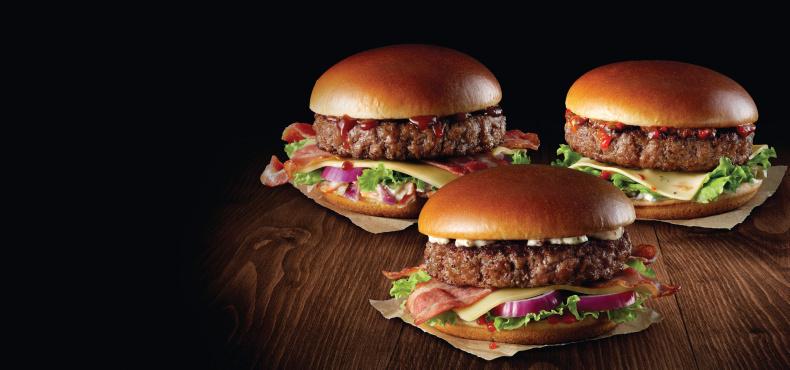
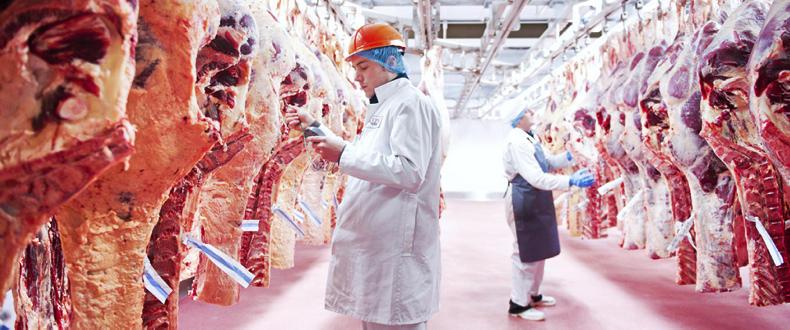
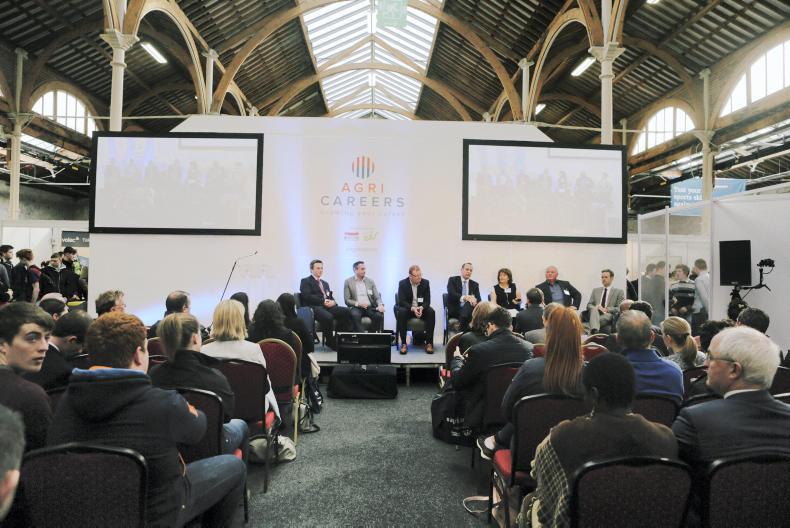
SHARING OPTIONS